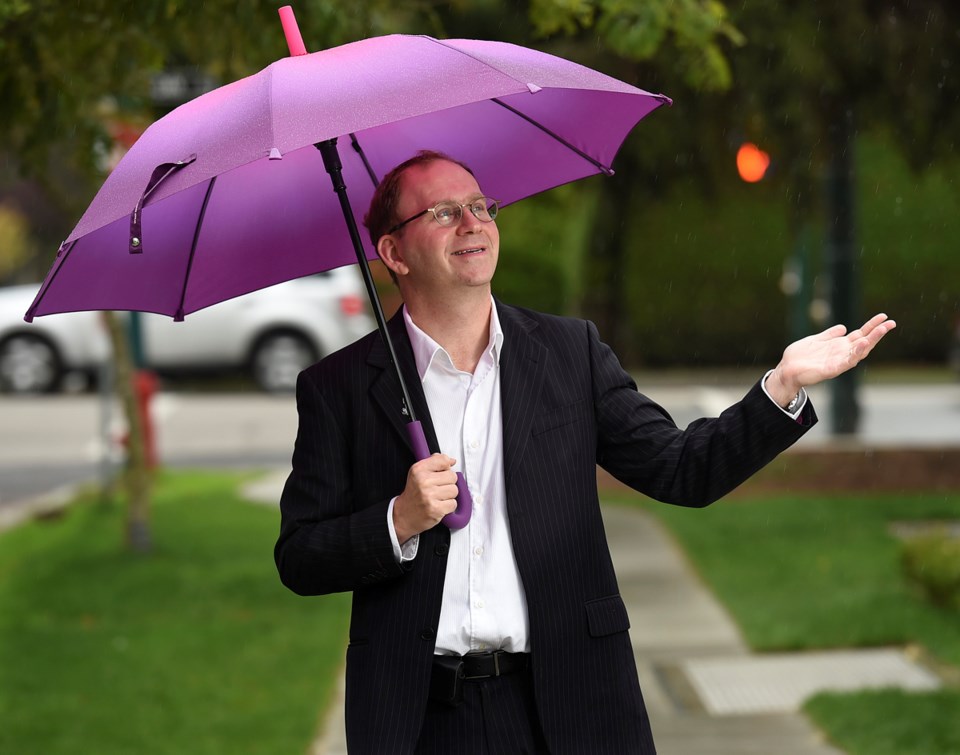Jewish Vancouverites are in the midst of the High Holidays, a succession of festive occasions interposed by the most solemn day in the calendar. It is a time of emotion, celebration, reflection, repentance and facing mortality. There is also, coming up, a holiday specifically focused on the heaven-sent gift of rain.
Scarcity of rain is an issue Vancouverites have rarely had to consider before this summer, but which the Jewish people, whose history and present-day homeland are rooted in desert climes, have been obsessing over for millennia.
Late summer and early autumn is a time jam-packed with Jewish holy days. (The holidays are fixed to the Hebrew calendar, so they move about from August to October, depending.) Rosh Hashanah, the Jewish new year, began at sunset on Sept. 13, kicking off the season.
Families and friends gathered, almost invariably around bountiful meals of traditional foods, depending on cultural background. Ashkkenazi Jews, those of European ancestry, likely had roast chicken or brisket. Sephardic Jews, those from North Africa and parts of the Middle East, more likely had couscous with a spicy chicken stew accompanied by eggplant, citrus, dried fruits and nuts. Apples were dipped in honey in hopes of a sweet new year. Pomegranates, whose bountiful seeds each represent a good deed in the coming months, were shared. The challah, traditional braided egg bread, is baked round at this time of year, signifying the cyclical end and beginning of the year.
Beginning with the two-day celebration of Rosh Hashanah and continuing through the solemn fast day of Yom Kippur, which began at sunset Tuesday, are the âDays of Awe.â Religiously, this is a period during which Jewish people are expected to undertake deep reflection.
God is said to inscribe in the book of life on Rosh Hashanah who will live and who will die, who will have a good year and who a bad one. The book is said to be sealed on Yom Kippur, based on an individualâs actions during this window of repentance, prayer and good deeds.
The cycle continues with Sukkot, a weeklong holiday that begins at sundown this Sunday. The holiday has both a religious and an agricultural significance. Observant Jews will build temporary shelters (booths) in their yards and dwell there for the week, under a roof made of tree boughs. The building, called a sukka, is reminiscent of the impermanence of the biblical transition of the Hebrew people from bondage in Egypt through the 40 years in the desert before arriving in the Promised Land. The sukka is decorated with fruits and vegetables, reflecting the other part of the holidayâs significance â a harvest festival.
At the immediate close of Sukkot comes Shemini Atzaret. Literally, this means âeighth day,â and is both part of Sukkot and apart from it. Among the most important aspects of the services for this day is a prayer for rain. For Jewish Vancouverites, who may have just spent a soggy week in a dripping sukka, the prayer may seem superfluous. But the prayer is not for rain here; itâs a prayer for rain in the land of Israel.
âThe entire Jewish calendar of holiday cycles and our prayer cycle revolves around the land of Israel,â explains Rabbi Jonathan Infeld, spiritual leader at Beth Israel, the large synagogue on Oak Street and West 28th, which is associated with Judaismâs Conservative movement.
âOne of the big things to keep in mind is that there is a limited rain season in Israel,â he says. âFor most of Israel, once you hit the summer, there is no rain at all. We focus so much of our attention on the rain because, especially when you talk about parts of Israel that run temperatures of probably between 40 and 45 degrees during the summer, rainâs pretty darn important.â
Israel today is a world leader in water desalination and irrigation technologies that make the most of limited supplies.
âIn the ancient period, there was no chance of water desalination, so if you had a drought like the droughts [here] in the summer or in California that continues to go on, death was a certainty,â Infeld says.
The relationship between the people of Israel and Egypt looms large in Jewish history. The holiday at the other end of the rainy season â Passover, in the springtime â marks the escape of the Hebrew people from slavery in Egypt.
The lessons of that dark period include an understanding about water â and about the relationship between the Jewish people and God.
Egypt has the Nile River running through it and the river frequently overflowed its banks, flooding the land. Egyptians, traditionally, looked for water coming up from around their feet.
Once they arrived in the land of Israel, the Jewish people had only one dependable source of water â from above.
âThe people of Israel, the Jews, are continuously looking toward heaven for the water to fall,â says Infeld. âSo youâre always looking up toward God.â



